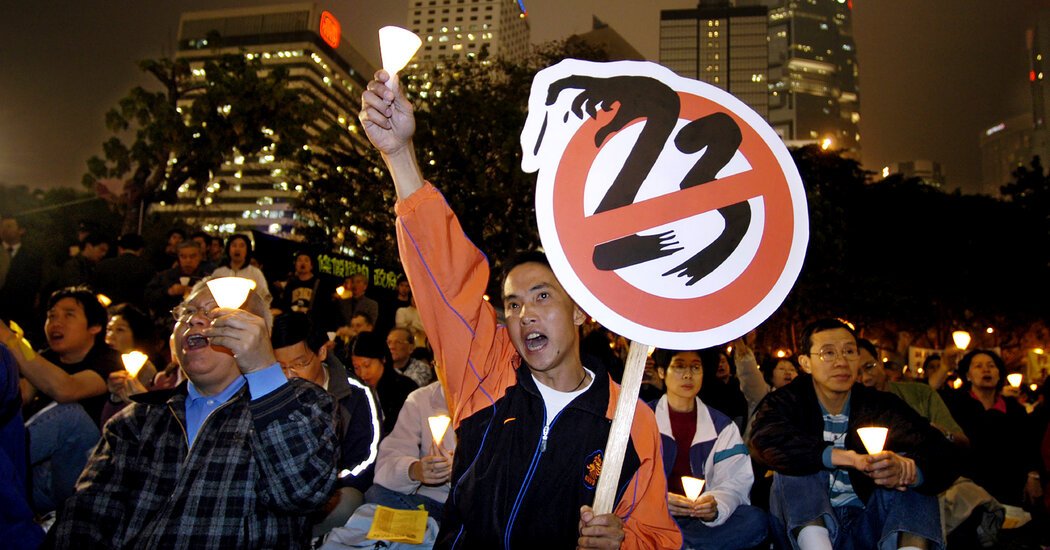Hong Kong passed national security legislation on Tuesday, giving officials in the Chinese territory more power to curb dissent, 21 years after mass protests forced the government to backtrack on a plan to introduce such laws.
The legislation targets political offenses like treason and insurrection with penalties as harsh as life imprisonment and expands the scope of what can be considered criminal behavior. Local officials have said it will close gaps in a security law that China’s government imposed on the territory in 2020 after months of huge antigovernment protests.
The security legislation is another significant erosion of freedoms in a former British colony once known for its freewheeling politics and relative autonomy from China. It also highlights how weak Hong Kong’s once-boisterous civil society and political opposition have become over the past four years.
Here’s how Hong Kong got here and what’s in the law.
Grand plans, and pushback
When Britain handed Hong Kong back to China in 1997, the financial hub’s mini-constitution promised residents freedoms not available in the mainland, including a free press and an independent judiciary. But it also called for the eventual passage of national security laws to replace colonial ones the British were leaving behind.
The laws, known collectively as Article 23 for the section of the mini-constitution that mandates them, would have allowed for warrantless searches and the closure of newspapers deemed to be seditious. After hundreds of thousands of people protested in the streets that summer, some top officials resigned and the territory’s top leader withdrew the legislation, saying it would not be reintroduced until it had more public support.
The support never materialized, and other efforts to chip away at Hong Kong’s high degree of autonomy also ran into steep resistance.
In 2014, protesters demanding that Hong Kong’s people have more say in the election of its top political leader, the chief executive, camped out for months amid the high-rises of the city’s downtown. They didn’t get what they demanded, but their effort inspired an even bigger wave of resistance five years later.
In 2019, mass protests broke out over draft legislation that would have allowed extraditions to the Chinese mainland. They dragged on for months, often turned violent and posed the biggest challenge to the central government’s authority in decades. The unrest ended with the imposition of Beijing’s 2020 national security law and the mass arrests of protesters and opposition lawmakers.
The fine print
Hong Kong’s new security legislation, which local lawmakers passed in a hurry under pressure from their bosses in Beijing, picks up where the central government’s version left off.
It targets treason, insurrection, sabotage, espionage, external interference and the theft of state secrets. Hong Kong officials have said it will complement the 2020 law and protect the city from “foreign forces” — something China’s powerful leader, Xi Jinping, has also warned about over the years.
The legislation’s effects on daily life and personal security were not immediately clear on XXXX. The local government has said that it would not ban Facebook or other social media platforms.
But it is clear that the legislation will make public criticism of government policies even riskier than it has been under the 2020 law.
Takeaways
That the law passed at all shows how much has changed since public resistance forced the Hong Kong government to backtrack in 2003. This time, there were no major protests, only criticism from foreign diplomats, rights groups and business officials.
The Hong Kong government has said the legislation is popular, but the ease with which it passed is hardly evidence of that. It sailed through an overwhelmingly pro-Beijing legislature after a four-year crackdown on dissent.
It has become harder to know what the Hong Kong public thinks, in part because the government has forced independent news outlets to shut down and restricted independent polling.
Days after Beijing’s 2020 security legislation became law, the police raided the office of an independent polling institute. It had just released the results of a poll asking whether Hong Kong was “still a free city.”
Sixty-one percent of respondents answered no.
Tiffany May contributed reporting.


